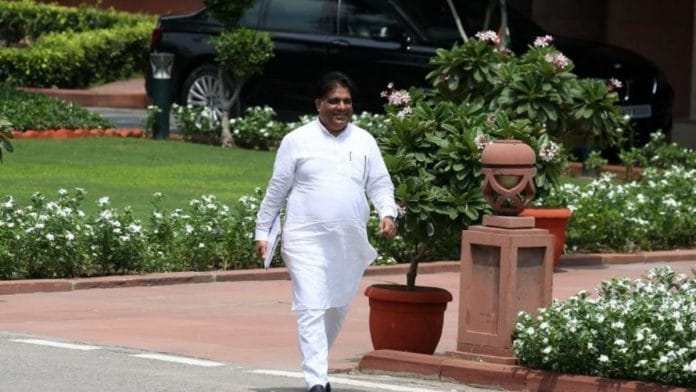Climate change is no longer just about protecting the environment. It is now as much a question of national security and patriotism as it is of environmental conservation. It is now an enemy that we cannot beat but may try to tame, in our attempts to defend India’s geography, natural resources and our people.
During his recently concluded visit to India, Alok Sharma, President-designate of the United Nations Conference of Parties, met the Minister for Environment, Forest and Climate Change Bhupender Yadav. Sharma expressed his hope that India would consider more ambitious emissions targets in view of the 2021 COP summit in Glasgow, later this year. The recently published Sixth Assessment Report of the Intergovernmental Panel on Climate Change (IPCC) also highlighted the need for extensive steps to contain climate change. According to the report, global temperature is estimated to rise 1.5oC above pre-industrial levels in the next two decades.
Need co-ordinated response
The response to the Covid-19 pandemic taught us that a coordinated effort by both the central and state governments is crucial to tackling a national problem.
Over the years, only the Central Government has played a significant role in taking cognizance of the threats of climate change and acting to contain it. Under the leadership of former Prime Minister Dr Manmohan Singh, the Union government launched the National Action Plan on Climate Change (NAPCC) in 2008. The action plan outlined eight national missions to mitigate climate change.
The policies of the Narendra Modi government push for a shift towards renewable energy. Schemes such as Faster Adoption and Manufacturing of Hybrid and Electric Vehicle (FAME), National Offshore Wind Energy Policy, etc. are proof.
But the state governments need to do more. There are rare initiatives by certain states and towns that are worthy of being emulated on a national scale. Notable examples include Indore, Surat and Sikkim.
Indore’s example of waste management holds exceptional value as a success story born out of the effective cooperation between authorities and citizens. Surat’s experimentation with the Emissions Trading System involving the trade of particulate matter ticks all the right boxes for innovation and sustainability. Equally significant is Sikkim’s complete conversion to organic farming methods.
What the above examples show us is that the actions of individual states and towns too can make significant contributions towards a cleaner, greener future. In fact, individual states need to do much more to reverse and/or contain the effects of climate change. Yet, sheer will alone is not enough for implementing far-reaching policies. Several of our states, especially those in the northeast, need much more infrastructural support from the Modi government and corporates in order to achieve the climate change and emissions targets.
The Modi government must supplement the limited resources of the states by helping them prepare action plans, access funds and set up new green-schemes. There should also be a push to provide financial backing to encourage industries to cut down emissions.
Also read: Prepare for extreme weather events, reduce emissions — IPCC report author has warning for India
Stress on indigenous technology
The Modi government has advocated for technology transfer to create more renewable and sustainable options. But the government’s focus seems to be on adopting Western technology. Adopting technology from the West will only serve to create a technology-divide. India should instead adapt technology to serve Indian purposes. Greater focus should be laid on developing domestic technology that can be adopted and/or adapted by the rest of the world. India has proved its ability to use low-cost, high-quality technology in the field of generic medicine. Green technology too should be taken up in a similar fashion.
The Modi government should provide the right set of incentives and adequate platforms to convert India into a hub of green technology. Development of affordable green technology will enhance India’s global standing, encourage entrepreneurship domestically and generate job opportunities.
A lot depends on the leadership of the states. Every chief minister should model themselves into a champion of climate change. They, in turn, should be led by the example of the central government, sending out a strong message on the urgency of the issue at hand.
With effective decentralisation of planning and fostering domestic technology, India can confidently make the pledge for zero emissions at the 26th Conference of Parties in Glasgow.
I earnestly hope that the future that awaits our coming generations is clean and green.
Gaurav Gogoi @GauravGogoiAsm is Congress MP and deputy leader, Lok Sabha. Views are personal.
(Edited by Anurag Chaubey)






